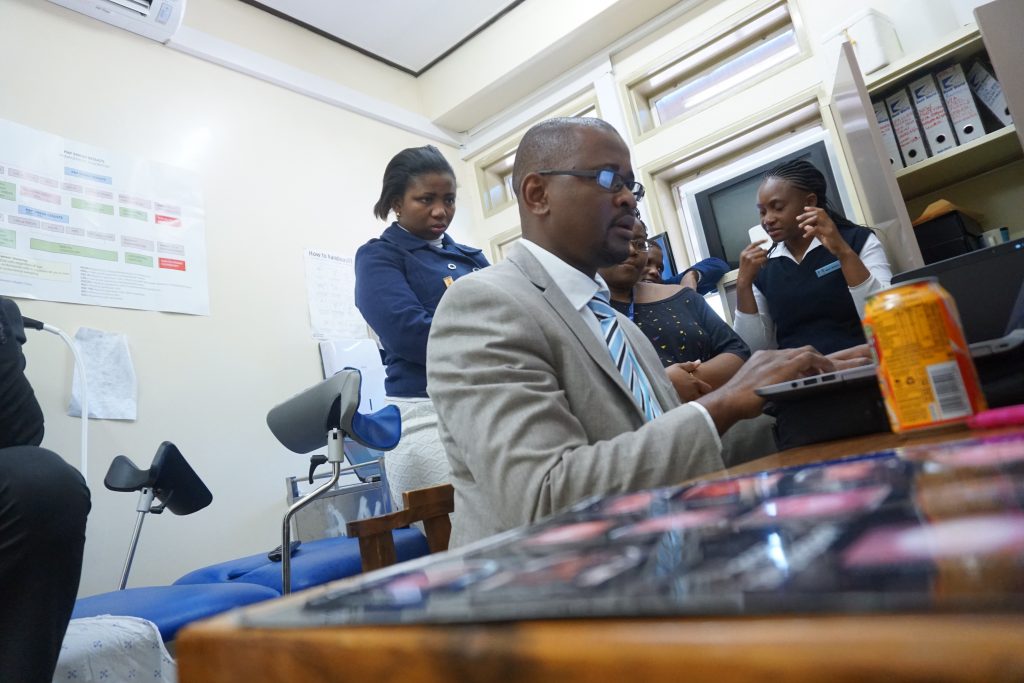In an increasingly globalized world, an internet connection has become an indispensable means of accessing knowledge and opportunity. Unfortunately, reliable and affordable internet access has yet to reach about half the planet’s population, meaning 4.2 billion people cannot read this blog post or any other online content. Poor internet connectivity also limits access to modern opportunities in education, commerce and healthcare. And in parts of the world where opportunities are scarce—from remote islands off the coast of Maine to sub-Saharan Africa—the public and private sectors are racing to find connectivity solutions. At Microsoft, we believe that some of the most innovative solutions bridging the digital divide are being created by entrepreneurs that are local to the communities they serve. By investing in their businesses, we help spark and scale up market innovations that create jobs, educate the next generation, and even save lives.
Through the Affordable Access Initiative (AAI), we’ve provided grants and support to 12 early-stage businesses working to bring innovations in applications, hardware, power and connectivity to regions where access is poor or nonexistent. Recently, our partners joined us on campus in Redmond, Washington, to share progress on how their technologies are helping create opportunities in agriculture, energy, education and healthcare around the world. All the technology we heard about was incredibly exciting, from Tambero’s chat bot which will enable farmers to “talk” to their cows and increase milk production, to New Sun Road’s micro-grids that provide affordable electricity to women business owners in Uganda.
One AAI partner, VistaAfrica, I want to share a bit more about is transforming healthcare in Botswana, a country with high incidences of illnesses like HIV/AIDS, malaria and cervical cancer. About 40 percent of the population lives in rural areas, where distances between towns are vast, transportation infrastructure is often limited, and it can take an entire day to visit a health clinic. Health clinic staff needed a way to reliably access medical charts and leverage patients’ sporadic visits to screen for conditions and capture a large volume of relevant heath data.

VistaAfrica’s software platform, Vista Electronic Medical Pathways (Vista), makes this all possible and empowers healthcare providers to more easily screen, track and treat patients’ health. Its platform is optimized for regions with very little internet connectivity, greatly increasing the utility of its applications in remote areas of Botswana and elsewhere. Vista can perform critical functions without an internet connection and it can store data locally until devices sync with the cloud to upload and download medical charts and other content. “People are going to live because of what’s being done,” says Peg Molloy, president and CEO of VistaAfrica.
VistaAfrica’s technology captures and stores patient charts securely in the cloud, ensuring that doctors and nurses have a comprehensive and up-to-date view of the patient’s health, which is challenging to do with paper charts. It also provides step-by-step protocols to train clinic staff to screen for illnesses like cervical cancer. “We have a global focus on cervical cancer because it is an illness that affects over 500,000 women each year. More than half of them—mostly those from low and middle income countries—will lose their lives to the disease,” says Molloy. “Cervical cancer is an illness that is preventable with timely screenings and treatment. Botswana is an early adopter of new global standards for cervical cancer care, and Vista software supports a new innovative cancer program. We have an opportunity to help save thousands of lives.”
In addition to improving patient health, VistaAfrica is also capturing data that will help build a new database on cervical cancer rates in Africa. “Data improves care,” says Molloy. With this data, VistaAfrica hopes that public health organizations can create new measures and systems to reduce deaths from cervical cancer.
I’m excited to continue working with our partners to help expand reliable, robust and affordable internet connectivity around the world. We believe that once connectivity is in place, more opportunities can follow, whether they’re catalyzed by market-based factors, or by organizations like Microsoft Philanthropies, which has committed $1B in cloud resources for the global good, among other support. It takes a rich ecosystem of organizations working together to close the digital divide and build a bridge over the opportunity gap. We wouldn’t be able to do it without our partners.
Learn more about Microsoft’s Affordable Access Initiative and our commitment to A Cloud for Global Good
